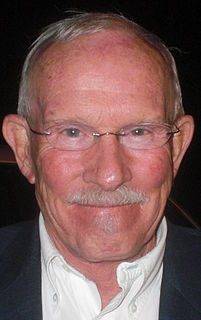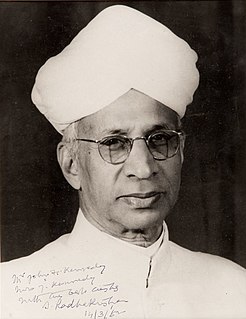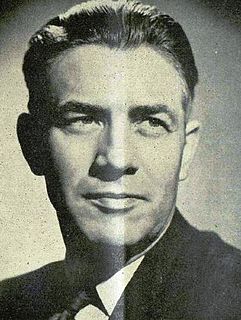A Quote by Leonard Cohen
They ended every speech with the word hiro, which means: like I said. Thus each man took responsibility for intruding into the inarticulate murmur of the spheres. To hiro they added the word koue, a cry of joy or distress, according to whether it was sung or howled. Thus they essayed to piece the mysterious curtain which hangs between all talking men: at the end of every utterance a man stepped back, so to speak, and attempted to interpret his words to the listener, attempted to subvert the beguiling intellect with the noise of true emotion.
Quote Topics
According
Added
Attempted
Back
Between
Cry
Curtain
Distress
Each
Emotion
End
Ended
Every
His
Inarticulate
Intellect
Interpret
Joy
Like
Listener
Man
Means
Men
Murmur
Mysterious
Noise
Piece
Responsibility
Said
Speak
Speech
Spheres
Stepped
Subvert
Sung
Talking
Thus
Took
True
Utterance
Whether
Which
Word
Words
Related Quotes
Destiny ... a word which means more than we can find any definitions for. It is a word which can have no meaning in a mechanical universe: if that which is wound up must run down, what destiny is there in that? Destiny is not necessitarianism, and it is not caprice: it is something essentially meaningful. Each man has his destiny, though some men are undoubtedly "men of destiny" in a sense in which most men are not.
Very often pessimistic people speak against their own desire. They want to undertake some work, and they say, 'I will do this, but I don't think I shall succeed in it.' Thus they hinder themselves in their path. Man does not know that every thought makes an impression on the consciousness and on the rhythm with which the consciousness is working. According to that rhythm that reflection will come true and happen; and a man proves to be his own enemy by his ignorance of these things.
I believe that there is but One Thinker in the universe; that my thinking is His thinking, and that every man's thinking is an extension, through God, of every other man's thinking. I therefore think that the greater the exaltation and ecstasy of my thinking, the greater the standards of all man's thinking will be. Each man is thus empowered to uplift all men as each drop of water uplifts the entire ocean.
Every word instantly becomes a concept precisely insofar as it is not supposed to serve as a reminder of the unique and entirely individual original experience to which it owes its origin; but rather, a word becomes a concept insofar as it simultaneously has to fit countless more or less similar cases -- which means, purely and simply, cases which are never equal and thus altogether unequal.
The scriptures, for example, discredit an ancient philosophy that has come back into vogue in our day-the philosophy of Korihor that there are no absolute moral standards, that "every man prospers according to his genius, and that every man conquers according to his strength; and whatsoever a man does is no crime" and "that when a man is dead, that is the end thereof".
We believe that man's value - as every creature's value, ultimately - lies not in the mere intellect but in the spirit: in the capacity to reflect that which, for lack of a more precise word, we choose to call “the divine,” i.e. that which is true and beautiful beyond all manifestation, that which remains timeless (and therefore unchangeable) within all changes.
The words and lives of Christian men must be in continual process of reformation by the written Word of their God. This means that ecclesiastical traditions and private theological speculations may never be identified with the word which God speaks, but are to be classed among the words of men which the Word of God must reform.
The Creation speaks a universal language, independent of human speech or human language, multiplied and various as they be. It is an ever-existing original, which every man can read. It cannot be forged; it cannot be counterfeited; it cannot be lost; it cannot be altered; it cannot be suppressed. It does not depend upon the will of man whether it shall be published or not; it publishes itself from one end of the earth to the other. It preaches to all nations and to all worlds; and this Word of God reveals to man all that is necessary for man to know of God.
The word Atman (Soul) means the "breath of life". Atman is the principle of man's life, the Soul that pervades his being, his breath, his intellect and transcends them. Atman is what remains when everything that is not the self is eliminated. It is the unborn and immortal element in man, which is not to be confused with body, mind or intellect.
The world's history is a divine poem, of which the history of every nation is a canto, and every man a word. Its strains have been pealing along down the centuries, and though there have been mingled the discords of warring cannon and dying men, yet to the Christian philosopher and historian - the humble listener - there has been a Divine melody running through the song which speaks of hope and halcyon days to come.
In the first section of the Doctrine and Covenants we read that 'the Lord shall come to recompense unto every man according to his work, and measure to every man according to the measure which he has measured to his fellow man.' (D&C 1:10.) This principle, showing the manner by which God will judge us, puts a new light upon the commandment to love our neighbors as ourselves, and should persuade us to take that law seriously.
Tobacco smoke is the one element in which, by our European manners, men can sit silent together without embarrassment, and where no man is bound to speak one word more than he has actually and veritably got to say. Nay, rather every man is admonished and enjoined by the laws of honor, and even of personal ease, to stop short of that point; and at all events to hold his peace and take to his pipe again the instant he has spoken his meaning, if he chance to have any.







































